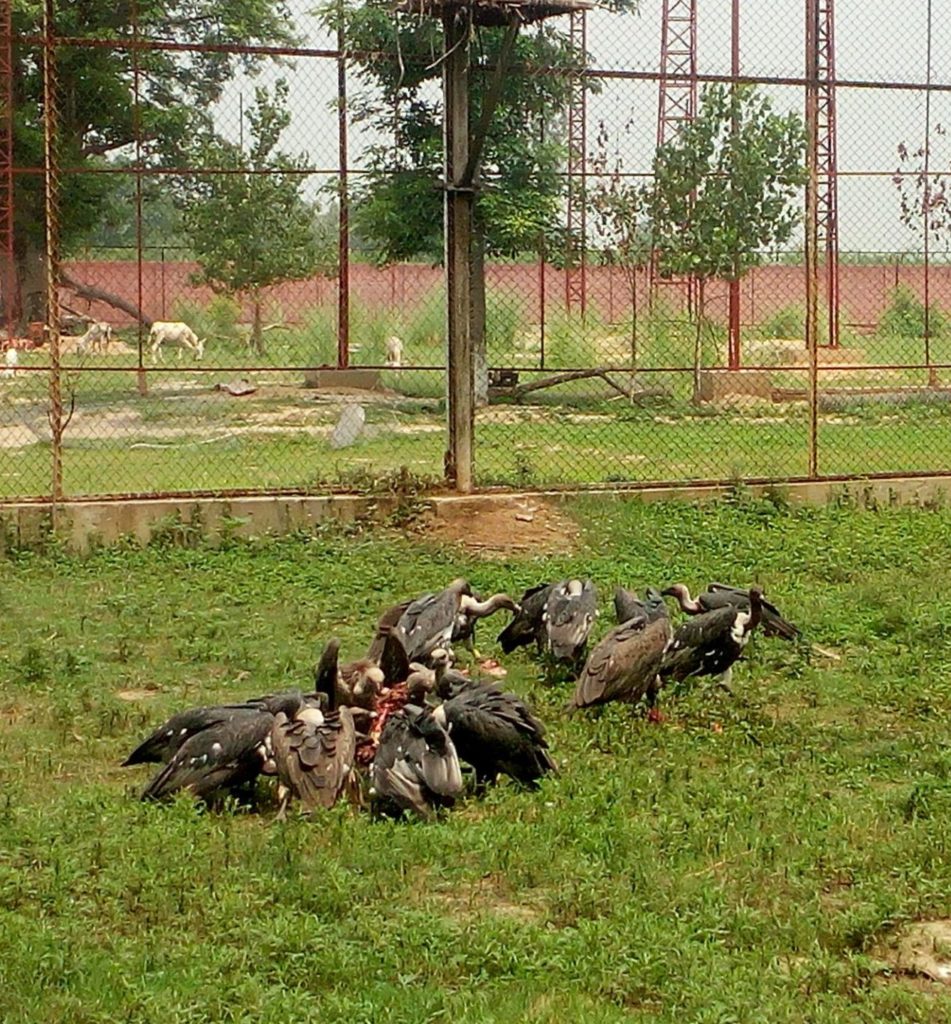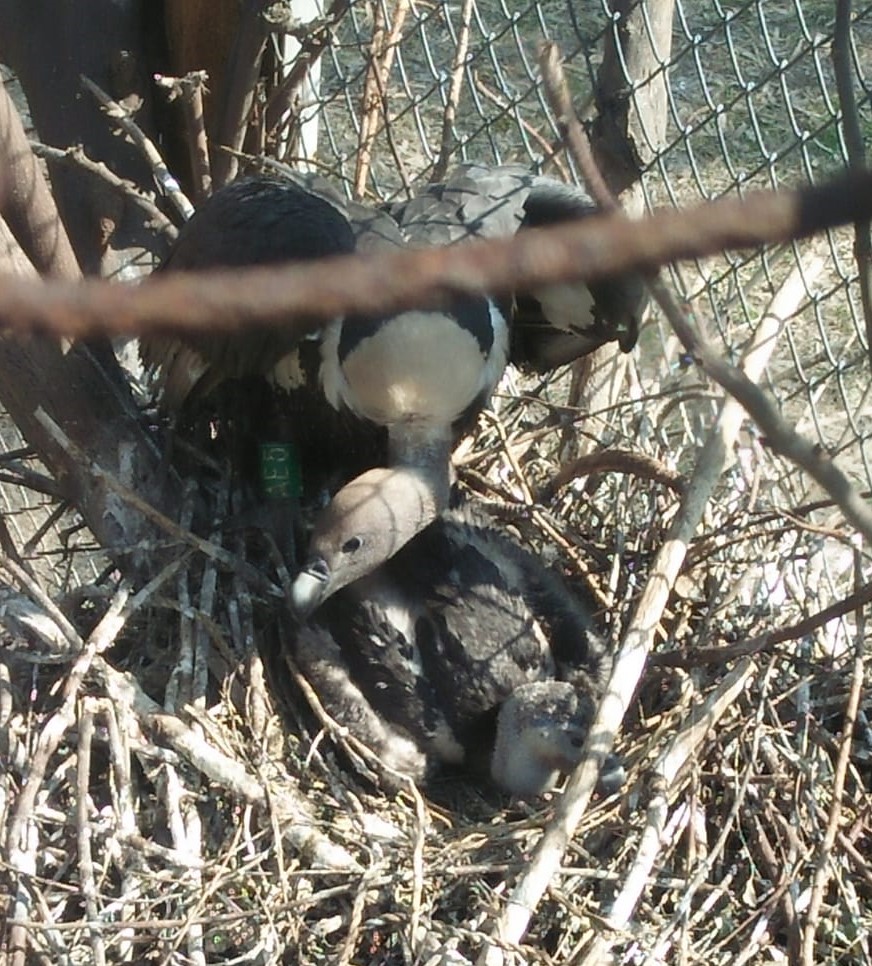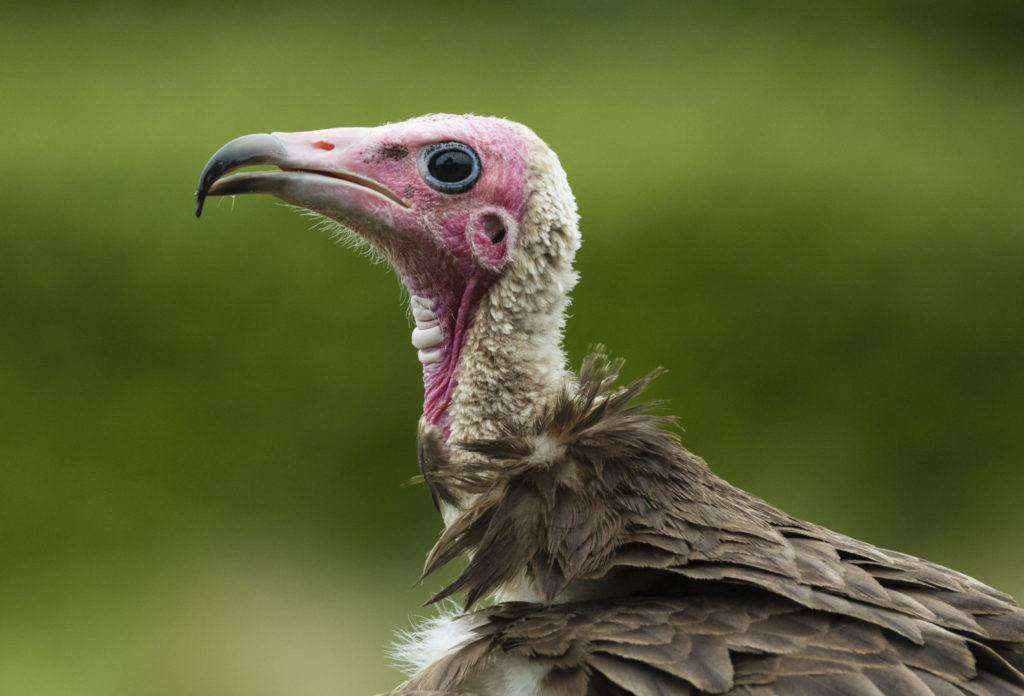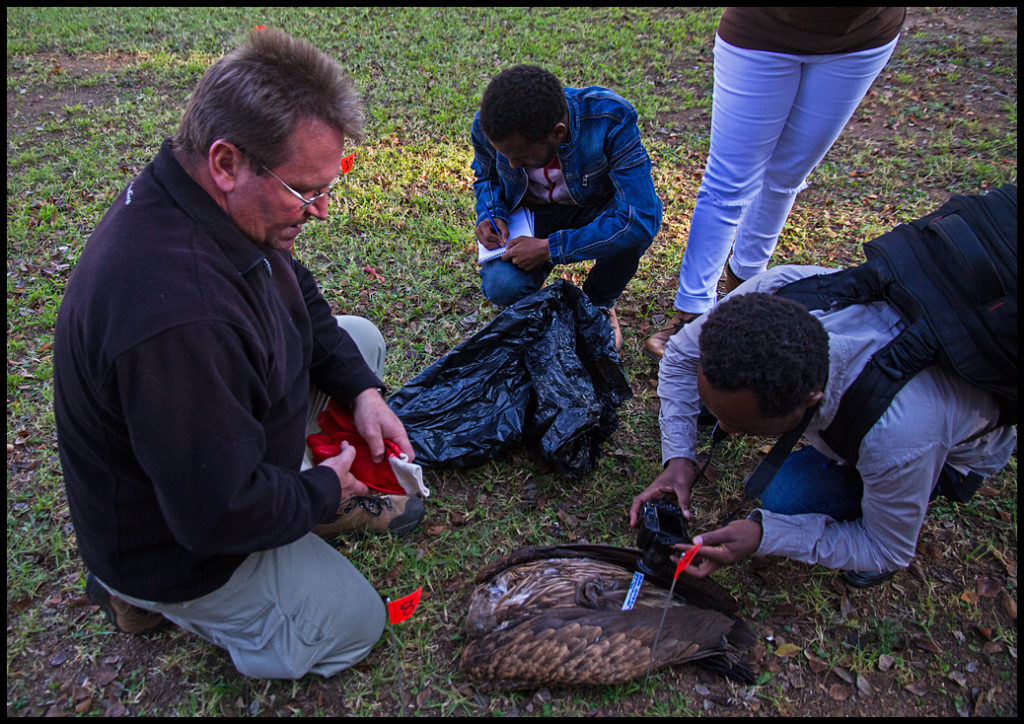
Saturday 5 September is International Vulture Awareness Day (IVAD). At the Hawk Conservancy Trust, we love vultures, and we work every day to raise awareness and educate the public about the plight of these wonderful birds and the vital conservation and research work we do to help vulture populations in the wild. Our International Vulture Programme (IVP) has projects in southern and East Africa and south Asia, and we are extremely grateful to our IVP partners who help to fund this programme.
This International Vulture Awareness Day on 5 September 2020 we will pull out all the stops for vultures! If you are lucky enough to visit, we will have even more vultures in our fantastic flying displays, colouring and activity sheets for kids, a poisoning crime scene to investigate, and a one-off display with a very special vulture to conclude the day. If you are not able to make it in to the Trust, we will have plenty of updates and posts on social media, including this article which gives all the latest information about our International Vulture Programme and the important work we are doing to conserve vultures across the globe.
As a group, vultures are the most threatened birds in the world – many populations are under pressure and some species are facing the very real risk of extinction. Adding this to their ecologically important role increases the importance of conserving them.
Our Pakistan Vulture Restoration Project (PVRP) is a joint initiative between the Hawk Conservancy Trust and WWF-Pakistan. It is based at Changa Manga conservation breeding centre in the Punjab Province of Pakistan, where we have a colony of 25 Asian White-backed Vultures. In the best breeding year yet, our White-backed Vulture colony has fledged three new chicks this year!
In addition, this project protects wild breeding populations of White-backed Vultures, Long-billed Vultures, Red-headed Vultures and Egyptian Vultures in a Vulture Safe Zone (VSZ) in Sindh Province, Pakistan and a new potential Vulture Safe Zone (pVSZ) in northern Pakistan. Vulture populations and vulture-unsafe drug, such as diclofenac, availability within the VSZ are monitored regularly and we are working to fit tracking units to individual vultures in order to understand their movements and behaviour. Initial surveys in the pVSZ in northern Pakistan have revealed widespread availability and use of diclofenac, so it is imperative that project activities extend into this area.
Find our more about our work in south Asia.

 Our work in southern and East Africa
Our work in southern and East AfricaPoisoning is the biggest threat to vulture populations in Africa. It has increased rapidly with the ongoing elephant poaching crisis for the illegal ivory trade. Poachers deliberately target vultures, by lacing carcasses with extremely potent poisons, because vultures fly over carcasses and alert law enforcement. This type of poisoning accounts for one third of all vulture poisonings since 1970 and is now the biggest cause of vulture deaths.
Research by the Trust’s Head of Conservation and Research, Dr Campbell Murn, and Project Officer, Andre Botha, has taken the first steps towards assessing the risk from poisoning associated with elephant poaching (A clear and present danger: impacts of poisoning on a vulture population and the effect of poison response activities). Using a computer programme called VORTEX, we assessed a population of White-backed Vultures being affected by poisoning.
According to the model, poisoning caused large population declines (50-100%) in almost all cases where it occurred. In more than one case, the average time to extinction was 50-60 years. The results show that carcasses of elephants killed by poachers and laced with poison are a clear and present danger; they will lead to local extinctions of vulture populations.
We have developed a project with partners at the Endangered Wildlife Trust and the University of Reading to provide Poison Response Kits and a training programme to field staff in high-risk areas in southern and south-eastern Africa. This work is extremely important as it trains and equips field staff to deal with poisoning events when they occur.
Find out more about our Poison Response Action Campaign.
We also run vital research projects with Critically Endangered vultures in southern Africa. Our philosophy is one of evidence-based conservation management, and it is extremely important that we monitor populations and try to increase our knowledge about their behaviour so we can effectively conserve them. Our Savanna Vulture Project researches the biology and ecology of four tree-nesting vulture species: White-backed Vultures, White-headed Vultures, Lappet-faced Vultures and Hooded Vultures.
A focal species is the Hooded Vulture; we are investigating in more depth the breeding ecology and habitat requirements of this species. In southern Africa it is poorly understood because, in contrast to Hooded Vultures in West Africa, which are often commensal with humans and easily observed, the Hooded Vulture in southern Africa is elusive and secretive in its breeding habits. This project aims to characterise nest sites of Hooded Vultures by looking at surrounding vegetation types and landscape features, determine breeding success and estimate population size.
Find out more about our work with Hooded Vultures.


On International Vulture Awareness Day, we are aiming to raise £1000, enough for three poison response kits (PRKs). You can help us raise the funds needed to provide these kits that could save thousands of vultures and other wildlife from an unnecessary death due to poison. If you are visiting on the day, just pop your kind contribution in our collection buckets at the end of the displays and at our poisoning crime scene. If all our visitors on IVAD donated just £2 each, we would raise enough for a whole PRK!
We are so grateful for any support towards our vital conservation work, especially following COVID-19 as we were forced to close during lockdown and now have restrictions on visitor numbers, which has significantly impacted our income. If you are not able to make it in for IVAD, you can also donate online.